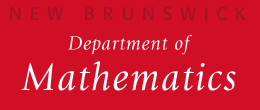MESSAGE FROM THE DEPARTMENT CHAIR
(Richard Lyons)
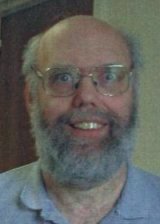
However, our core missions in the department have not changed:
cutting-edge research by our faculty and graduate students, training
of the the next generation of mathematicians and teachers of
mathematics, and an undergraduate program that enrolls some 17,000
students each year, with perspectives ranging from pure mathematics to
engineering, from mathematical biology to financial mathematics, from
scientific computation to discrete mathematics. In spite of the
drastic budget cuts, I am very optimistic that we will continue our
long tradition of excellence in carrying out these missions. There are
good reasons for this. For example,
the two Teaching Assistantships have been offset for a couple of years
+by new support for graduate students that we won from the Department
of Education. A new program in Mathematical Finance will help to
support special projects. These are examples of the creative
leadership of our previous chairs, Rick Falk and Robert Wilson. Most
importantly, our Ph.D. students continue to succeed at a very high
rate; our undergraduate major program has developed new tracks and
5-year bachelor-masters programs in mathematical biology and
mathematical finance, new courses for prospective teachers, and an
exciting revitalized honors track that is attracting extremely
talented students; and our faculty continue their world-class
research, advancing the mathematical frontier in many important
areas. My optimism, in other words, is
supported by our record of excellence year after year. The stable
sources of external funding that we do have -- such as the Weill
Fellowships both for undergraduates and graduate students -- will
continue to be a critical and much-appreciated part of our operation.
I hope that you
will enjoy reading the news below about what's going on in and around
Hill Center.
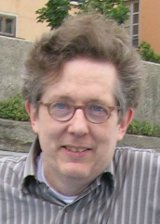
A new course in financial mathematics, taught by Professor Dan Ocone, has proved very popular. We are expanding our offerings for prospective elementary, middle-school, and high-school teachers. The Careers and Ideas seminar, run by Enriqueta Carrington and held in the Undergraduate Lounge on occasional Wednesday evenings, has been well-attended, sometimes overflowing into the hallway. The talks attracted faculty as well as students, and brought back some undergraduate and graduate alumni as speakers. Among the intriguing talks were "Mess is Inevitable: a Mathematical Proof" by Professor Jószef Beck, "Actuarial Careers" by Norman Clausen '66, "Managing BIG Money" by Ray Ross '90 Ph.D., and "When Singularities Collide" by Professor Michael Beals.

Beyond our bread-and-butter undergraduate and Ph.D. programs, the department is continuing and expanding our outreach efforts. One very successful program, in its 18th year, is the summer Rutgers Young Scholars Program in which talented high school students study discrete mathematics intensively for four weeks. Professors Joseph Rosenstein and Michael O'Nan have directed this program since its inception. In the summer, our REU program (Research Experiences for Undergraduates) is open to undergraduate applicants from other colleges as well as Rutgers.
After two years of planning, the department's Master of Science in Mathematics/Mathematical Finance program got off to a good start in September 2006. This joint effort with the Statistics Department is the brainchild of Professor Paul Feehan, who has worked extremely hard to bring his idea to reality. The three-semester program enrolled some 16 students in the first class. The number of new students will more than double next year.
This year we are losing several colleagues. Tragically and rather suddenly, Martin Kruskal passed away last December. In February, hundreds paid him tribute at a memorial ceremony. After this year, Peter Landweber, Norman Levitt, and Charles Sims will retire, after a combined 117 years at Rutgers and 17 Ph.D. students. Our young colleague Manya Raman, who held a joint appointment with the Graduate School of Education, has resigned to pursue her career in Europe.
Despite the terrible budget cuts, we have been able to bring in some new faculty, thanks in large part to progress made under Rick Falk's chairmanship. During his tenure, Rick obtained Academic Excellence Funding to make two senior hires possible; this funding has been used to hire Professors Van Vu and Eric Carlen. Rick also restored the Hill Assistant Professor program to its original size (five positions) and created "triennial" Assistant Professorships, like the Hill positions but with more emphasis on teaching. Many of our new faculty are in such positions. In the fall, we will also welcome three tenure-track Assistant Professors: Young-Ju Lee, a Numerical Analyst; Jian Song, a Geometric Analyst; and Roderich Tumulka, a Mathematical Physicist.
There are many new faces around the department's administrative offices on the third floor of Hill Center these days. After Rick Falk stepped down as chairman in 2005, Robert Wilson generously and graciously agreed to serve as Acting Chair for a year. By June 2006, the terms of Undergraduate Vice-Chair Eugene Speer and Graduate Vice-Chair Charles Weibel were expiring as well. You will notice below that all four are smiling in the afterglow of their return to full-time teaching and research.
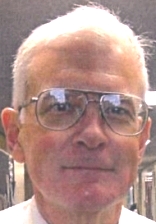
Robert Wilson
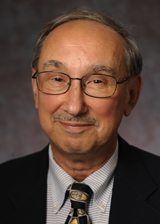
Richard Falk
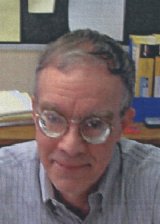
Gene Speer
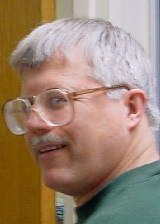
Chuck Weibel
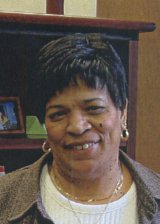
Judith Lige
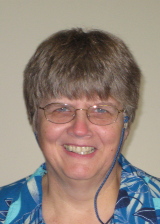
Lynn Braun
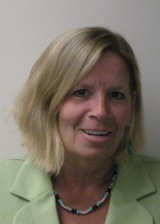
Risa Hynes
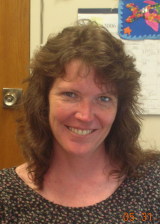
Maureen Clausen
During all of these changes, the senior staff, consisting of Judith Lige, Lynn Braun and Risa Hynes - and eventually Maureen herself - were steady at the controls, and did a superb job of filling in gaps and then training the new staff. Thanks to the entire staff for their vital support!
TOP
NEW PRIZES AND HONORS FOR OUR FACULTY
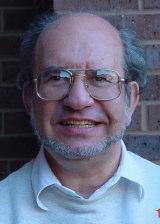

GREGORY CHERLIN was awarded an Honorary Doctorate by the Université Claude Bernard Lyon 1, in May 2007.
AMY COHEN was made a Fellow of the American Association for the Advancement of Science, in March 2007.


GIOVANNI GALLAVOTTI has received the 2007 Boltzmann Medal. This honor, awarded every three years by the International Union of Pure and Applied Physics, is their highest award in Statistical Physics.
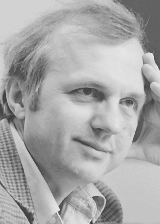
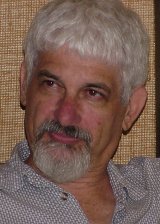
JÁNOS KOMLÓS is a 2007 recipient of the Award for Distinguished Contributions to Undergraduate Education, of the Rutgers School of Arts and Sciences. He was cited for his many contributions to building the honors track and administering the department's REU program (Research Experiences for Undergraduates).
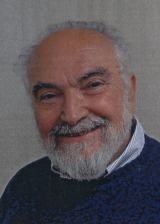
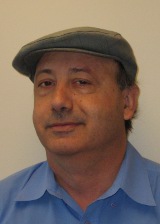
RICHARD LYONS was given the 2006 Rutgers Board of Trustees Award for Excellence in Research, and cited for "fundamental contributions to the theory of finite groups, in particular to the classification of finite simple groups."
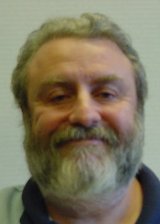
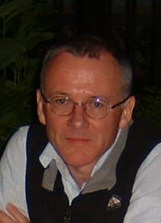
HÉCTOR SUSSMANN is the winner of the 2007 Reid Prize of the Society for Industrial and Applied Mathematicians. This prize is awarded annually for outstanding contributions to the broadly defined areas of differential equations and control theory.
SIMON THOMAS spoke at the International Congress of Mathematicians in Madrid in August, 2006. He gave an invited lecture entitled "Borel Superrigidity and the Classification Problem for the Torsion-free Abelian Groups of Finite Rank" in the Logic and Foundations section.
TOP
RECENT FACULTY PROMOTIONS AND ARRIVALS
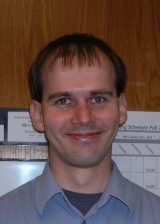
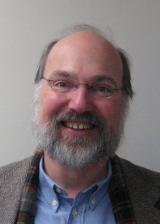
MICHAEL KIESSLING was promoted to the rank of Professor I, as of July, 2006.
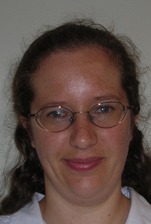
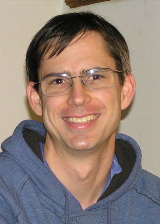
AVY SOFFER was promoted to the rank of Professor II, as of July, 2006.
CHRISTOPHER WOODWARD was promoted to the rank of Professor I, as of July, 2007.
We congratulate our colleagues for their outstanding achievements that led to these promotions.
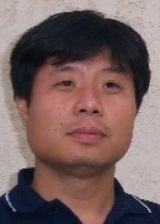
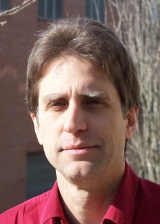
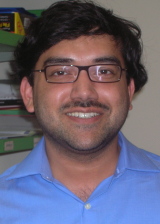
RITABRATA MUNSHI is just finishing the first of three years as Hill Assistant Professor, having received the Ph.D. from Princeton University in 2006 under the direction of Andrew Wiles. His chief mathematical interest is Number Theory, and he is being mentored by Professor Henryk Iwaniec.
TOP
NEW FACULTY ARRIVING IN SEPTEMBER 2007
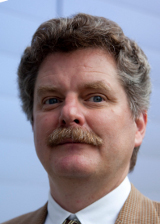
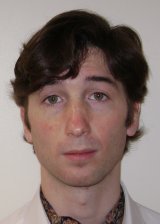
ADRIEN DELORO will be joining the Math Department as Hill Assistant Professor. His interests are in model theory and group theory, and in particular in the classification of simple groups of finite Morley rank. His Ph.D. work was at the University of Paris under the direction of Professor Eric Jaligot. At Rutgers his mentor will be Professor Gregory Cherlin.
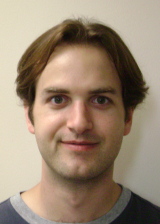
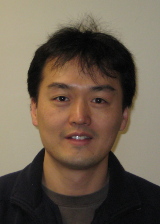
YOUNG-JU LEE will be joining the Math Department as tenure-track Assistant Professor. He is a Numerical Analyst. After receiving his Ph.D. at Penn State University under the direction of Professor Jinchao Xu, Professor Lee spent the last three years in a postdoctoral position at U.C.L.A. under the aegis of Professor Russel Caflisch.
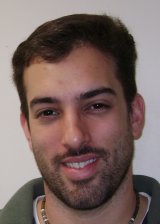
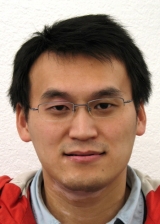
JIAN SONG will be joining the Math Department as a tenure-track Assistant Professor. His interests are in complex geometry and in particular in Ricci flow. After earning his Ph.D. at Columbia University under the direction of Professor Duong Phong, Professor Song spent the last three years at Johns Hopkins University as J. J. Sylvester Assistant Professor of Mathematics.
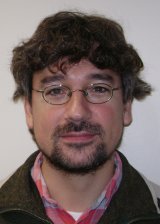
TOP
RETIRING FACULTY
Three long-time members of our department are retiring. Their length of service averages 39 years. That's a lot of eigenvalues and integration by parts! They have supervised a total of 17 Ph.D. theses, and have a total of 24 mathematical "descendants." We wish them well and will be glad to see them when they come in to our emeritus offices. Luncheon receptions in their honor were held on May 1 and May 2 in the Wolfson Lounge.
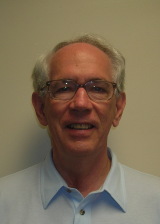
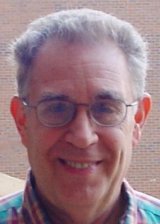
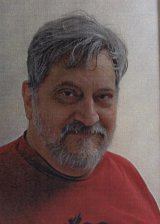
TOP
IN MEMORIAM: MARTIN KRUSKAL
Professor Martin Kruskal died in December 2006, in his 82nd year and his 19th year in our department. He was an iconic figure in mathematical physics, known among many other things for his foundational work on solitons. In February a memorial, held at Princeton University and jointly sponsored by the Mathematics Departments at Rutgers and Princeton, drew over 200 people. Mark Ablowitz, Russell Kulsrud, Percy Deift, Nalini Joshi, and Ovidiu Costin gave talks on Professor Kruskal's scientific impact. (Ovidiu and Rodica Costin are Professor Kruskal's last Ph.D. students at Rutgers.) There were also many personal reminiscences, including one by Joel Lebowitz, who mentioned Professor Kruskal's efforts on behalf of Soviet "refuseniks" thirty years ago. Earlier in 2006, Professor Kruskal had received the Steele Prize for Seminal Contribution to Research from the American Mathematical Society. Further information about Professor Kruskal appears in our on-line obituary.
TOP
IN MEMORIAM: DIANE APADULA
In December 2005, Diane Apadula, the head of our Student Services staff, died after a short illness. This was a great loss to the Math Department. Countless students knew Diane's voice as the first or second voice that they heard when they called or visited the Department. She was caring and thoughtful, but was firm when necessary, as often was the case. Diane came to the Mathematics Department in 1999 as Secretarial Assistant, and quickly mastered the complexities of the Undergraduate Office as well as the University bureaucracy that lurks behind it. In 2002 the Department named her Administrative Assistant for Student Services, a position created around her talents. Diane's open, optimistic personality and dedication to her job made her an invaluable member of our staff, and also a friend to many students, faculty and staff alike. Her illness shocked and deeply saddened her friends and colleagues in Hill Center. We remember Diane, we miss her, and we again extend our condolences to the Apadula family.
TOP
JOSEPH D'ATRI MEMORIAL LECTURES
Two sets of D'Atri lectures were given in 2006. On March 21 and March 23, Neil Trudinger of the Australian National University spoke on Nonlinear Elliptic PDE and Optimal Transportation and Nonlinear Elliptic PDE and Geometric Invariance. On November 8 and November 10, Henri Berestycki of the École des Hautes Études en Sciences Sociales (Paris) and the University of Chicago spoke on Reaction-Diffusion Equations in Nonhomogeneous Media.
The lecture series was established in 1994 in memory of the geometer Joseph D'Atri, a member of the Rutgers-New Brunswick Mathematics Department from 1963 to 1993, and chairman of the department from 1985 to 1990.
TOP
DEAN JACQUELINE B. LEWIS MEMORIAL LECTURES
This year's Lewis Lecturer has been Andrei Okounkov of Princeton University, who was awarded a Fields Medal last summer. His talks were entitled Moduli of Curves and Combinatorics.
TOP
NEWS FROM THE UNDERGRADUATE PROGRAM
(Gregory
Cherlin, Undergraduate Vice-Chair)
Developments in the Undergraduate Curriculum:
| New Courses | New Faces | New Web Pages | Directed Reading |

The reorganization should produce simpler and more uniform administrative procedures, and once the adjustment period is over, should make it easier for students to navigate the Rutgers bureaucracy successfully.
The budget cuts, on the other hand, are a continuing challenge to students, faculty, and administrators alike. Students may notice larger classes and more difficulty finding open sections at convenient times. At the end of the day we were able, with reduced resources, to serve the same number of students by increasing class sizes modestly and reallocating sections with ruthless efficiency. The price we paid was a more difficult registration process and greater use of our web-based special permissions system, located at http://www.math.rutgers.edu/specperm.html (activated at the beginning of each term).
Honors and Prizes
- Weill Scholarships for full time students majoring in
mathematics, based on academic merit
Alex Conway (2006,2007) Danielle Devletian (2006,2007) William McGowan (2006) Matthew Meola (2006,2007) Justin Palumbo (2006,2007) Aron Samkoff (2006) Matthew Samuel (2006,2007) Charles Siegel (2006,2007) Eric Wayman (2006,2007) - The Kenneth and Rosalind Wolfson Annual Award for Academic Excellence in Mathematics
| Joseph Walsh (2006), | Alexander Conway (2007), | Charles Siegel (2007) |
- The Bogart Prize for outstanding overall achievement as a mathematics major
- Marla Slusky (2006), Justin Palumbo (2007)
- The Bradley Memorial Prize for best overall performance on a prize exam
- Siwei Zhu (2006), Marla Slusky and Eric Wayman (2007)
- The Lawrence Corwin Memorial Math Prize for a University College Graduating Senior mathematics major with outstanding performance in upper level mathematics courses
- Paul Geyer
- The Lawrence Corwin Prize in Mathematics for superior performance on a prize examination
- Matthew Meola (2006)
- The Richard Morris Award for a Douglass College Graduating Senior mathematics major with an outstanding performance in upper level mathematics courses
- Aziza Jefferson (2006), Khrystyna Choliy (2007)
- The Hannah Hoyt Prize for a Douglass senior who has excelled in mathematics
- Khrystyna Choliy
- The Jacqueline B. Lewis Award
- Granted to an eligible University College student to help support graduate study in mathematics or psychology.
- Paul Geyer
- Pi Mu Epsilon Prize
- Awarded by the Douglass College chapter of Pi Mu Epsilon to the member of the junior class at Douglass College with superior achievement in mathematics
- Khrystyna Choliy (2006)
- The David Martin Weiss Award for notable achievement in mathematics by a first year student
- Joseph Shao (2007)
- Honorable Mentions
Wei Chen, Alexander Conway, John Kim, Tim (Hou Kyong) Lou, Justin Palumbo, Matthew Samuel
- Graduation with Highest Honors: Joseph Walsh (2006), Alexander Conway (2007), Matthew Meola (2007), Justin Palumbo (2007), Charles Siegel (2007), Eric Wayman (2007)
- Graduation with High honors: Siwei Zhu (2006)
- Graduation with Honors: Michael Burger (2006), Dennis Faynberg (2006), Evan Galipeau (2006), Aron Samkoff (2006), Zhongqiu Yu (2006), Michael Solway (2007)
Putnam Competition Results
Several Rutgers Students performed exceptionally on this U.S.-Canadian competition. In 2006 the Rutgers Team of Gene Kim and Marla Slusky ranked 19th. Results.
New Courses
- Along with our new Masters Program in Financial Mathematics, we introduced an undergraduate course in financial mathematics designed by Professor Dan Ocone in Fall 2006. This proved very popular, and a Careers and Ideas talk by Professor Ocone was delivered to a standing-room-only audience. While under development the course runs as a topics course with the number 495. It will be given again, by Professor Ocone, in Fall 2007, under the same number.
- We will also be introducing a 5-year program leading to a Masters Degree in Financial Mathematics (and saving the student one year).
- The Computer Science Department has introduced a new course, CS 107, suitable for mathematics majors, which can be used in place of the older CS 111 to fulfill a requirement for the math major. Students with a particular interest in computing are still encouraged to take CS 111, which continues to fulfill that requirement.
- Another topics course, a Connections Seminar for math students with an interest in K-12 teaching, has been running in Spring under as a topics course, also with the number 495, taught by one or both of Amy Cohen and Keith Weber. This course relates some of the mathematics studied in the courses required for the major with the needs of future teachers in the classrooms.
- Other mathematics courses intended for future teachers have been
developed. One of these has now entered the catalog as an
established course, Math 107,
Mathematics
for Elementary Teaching.
Another, Problem Solving and Reasoning with Discrete Mathematics, is being given in Spring 2007 as 103 T1, by Professor Rosenstein. - Our course
Selected Topics in Algebra (Math 357) has been
devoted to applications of algebra to signal processing, in a course
developed by Professor Roe Goodman:
[Discrete wavelet transforms] allow us to separate a digitized signal (or image) into low frequency components (coarse outline) and high frequency components (detailed features) in a computationally effective way. Then the signal or image can be compressed or enhanced (noise reduction) using these components.
New faces
There have been some administrative changes in and around the undergraduate office.
- The new Undergraduate Vice Chair is Gregory Cherlin.
- Our new Administrative Assistant is Maureen Clausen.
- Simon Thomas is the new head of the Honors Track in Mathematics, taking over from Michael Saks, now Graduate Director
- Dan Ocone has taken over from Professor Goodman as Actuarial Advisor.
New or enhanced web pages
We have adjusted our web pages, which contain a lot of
information but are not always easy to navigate.
The "Undergraduate Program" link goes to a variety of pages of interest
primarily to math majors or students strongly involved with
mathematics.
General information of use to all students is found
in the "Information for Students" menu, which includes a number of
new or enhanced entries:
-
- Course Materials and Course Descriptions
- The Course Descriptions takes you mainly to catalog copy, but the Course Materials page links to more detailed pages including syllabi for most of the courses we offer. This is a useful spot to visit if you want to know more about a course than you can get from the catalog description.
- Tutoring Links
- A new page with a few useful links. This includes links to the schedules for televised reviews which are given for some courses.
The Directed Reading Program
The Directed Reading Program is a program in which undergraduate students are paired with graduate student mentors for semester-long independent study projects. The program is modeled after the Directed Reading Program at the University of Chicago. It runs each semester and during the summer.
TOP
NEWS FROM THE GRADUATE PROGRAM
(Michael Saks,
Graduate Director)
New Ph.D.'s
Since our last newsletter, 12 of our students have received Ph.D.'s in Mathematics, and another 5 are on track to receive their Ph.D.'s in October. They are listed below with their advisors and their next employment--if known--in parentheses:
- Moa Apagodu (May 2006, D. Zeilberger, Virginia Commonwealth University)
- Corina Calinescu (Oct. 2006, J. Lepowsky, Ohio State University)
- Kevin Costello (V. Vu, The Institute for Advanced Study)
- William Cuckler (Oct. 2006, J. Kahn, University of Delaware)
- Satadal Ganguly (May 2006, H. Iwaniec, Institute of Mathematical Sciences, Chennai, India)
- Derek Hansen (Oct. 2007, M. Vogelius)
- Roman Holowinsky (May 2006, H. Iwaniec, Institute for Advanced Study)
- Qinian Jin (May 2006, Y. Li, University of Texas)
- Ben Kennedy (Oct. 2007, R. Nussbaum, Gettysburg College)
- Brian Lins (Oct. 2007, R. Nussbaum, Dickinson College)
- Rich Mikula (May 2006, Y. Li, William Paterson University)
- Thuy Pham (Oct. 2006, W. Vasconcelos, University of Toronto)
- Chris Stucchio (Oct. 2007, A. Soffer, Courant Institute)
- Vincent Vatter (Jan. 2006, D. Zeilberger, Univ. St. Andrews, Scotland)
- Sujith Vijay (May 2007, J. Beck, University of Illinois -- Urbana/Champaign)
- Michael Weingart (May 2007, F. Knop)
- Haoyuan Xu (May 2007, Y. Li, University of Connecticut)
Enrollments on the rise; ups and downs in financial support
Last fall, our 14 incoming Ph.D. students attended our fourth annual IMR (Introduction to Mathematics at Rutgers), meeting one another as well as some advanced graduate students and faculty, The IMR featured lectures giving glimpses of research areas as well as reviews of some mathematical folklore. This mini-conference, introduced in 2003, has become an annual fixture. In the coming fall the fifth IMR will welcome an incoming class of 18 students. Among these are 11 U.S. students, 7 students from abroad (Chile, China, India, and Romania), and 4 women.
Expanded support for this larger class was obtained a year ago from the federal govenment in two forms. One is a GAANN grant from the U.S. Department of Education (Graduate Assistantships in Areas of National Need), with yearlong funding available for 10 students, usable until 2009. Though initially it appeared last May that we would not win the GAANN funding, Chuck Weibel, then Graduate Director, noticed that our proposal had been mis-graded by the D.O.Ed. and that our actual grade qualified us for funding (yes, grant proposals get numerical grades). After some weeks of uncertainty, the funding arrived.
The other source of support was a spike in funding from the N.S.F. for Graduate Assistants on the individual research grants of our faculty. Our grant proposals in 2005-6 yielded a total of 17 GA's for anywhere from one to five years. This was by far our highest total in the history of the department, by a considerable margin, and came at a fortuitous time, since the 2006 budget cuts cost us the temporary loss of two TA lines.
Stable sources of support in these times of volatile funding are particularly valuable. We again acknowledge the continuing importance to graduate recruiting of the Weill Fellowships, which supplement other funding sources. They are a generous gift from Adrienne R. Weill and Maurice M. Weill. The Weill Fellows in 2005-6 were Andrew Baxter, Sara Blight, Jason Chiu, Robert Griffin, Samar Jafaar, Hoi Huu Nguyen, Wesley Pegden, Catherine Pfaff, Reza Rezazadagan, and Yuan Yuan; and those in 2006-7 are Gabriel Bouch, Justin Bush, James Dibble, Emilie Hogan, Tianling Jin, Elizabeth Kupin, Humberto Montalvan Gámez, Hoi Huu Nguyen, Wesley Pegden, Vijay Ravikumar, Dan Staley, Sushmita Venugopalan, Ke Wang, Yu Wang, and Brent Young.
TOP
GOING ON ONE:
THE M.S. PROGRAM IN MATHEMATICS/MATHEMATICAL FINANCE
(Paul Feehan,
Director)
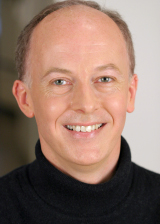
Paul Feehan
Our Master of Science degree in Mathematics, with Option in Mathematical Finance, has rapidly taken its place among programs offered by neighboring universities, joining the lists of quantitative finance programs featured by Global Derivatives (www.global-derivatives.com) and the International Association of Financial Engineers (www.iafe.org), the leading industry and academic society for quantitative finance. Our students can also take elective courses offered by the Business School, Computer Science, Economics, Electrical and Computer Engineering, and Operations Research. Enrollments at undergraduate and graduate levels are high, with approximately 50 students now taking the Introduction to Mathematical Finance sequence and 25 students taking the undergraduate mathematical finance course. Students with a wide variety of scientific, technical, and professional backgrounds are represented in our classes, including PhD candidates from Rutgers and part-time, professional students from firms such as Chubb, Citigroup, Goldman Sachs, Merck, and Merrill Lynch. An October 2006 panel event on Careers in Quantitative Finance organized jointly by the Mathematical Finance program and the Careers Office, featuring four Wall Street practitioners, attracted an audience of over 110 undergraduate and graduate students. This fall over forty new students will enter the program!
The options and derivative securities industry is a global market now estimated at $300 trillion. This industry plays a vital role in the world economy, risk management, credit markets, housing markets, insurance, and pension fund management. Research in option pricing theory has surged since the Nobel-prize winning work of Fischer Black, Myron Scholes, and Robert Merton in 1973 and the simultaneous establishment of the first modern option trading markets at the Chicago Board Option Exchange. Mathematical finance and applied probability are challenging fields of research which have grown in support of this vibrant industry and graduate-level training in this area leads to excellent career opportunities for Rutgers students. The establishment of the new degree program at Rutgers was noted by the Wall Street Journal in a November 14 careers article by Ronald Alsop, "Wall Street Warms to Finance Degree With Focus on Math."
TOP
RUTGERS YOUNG SCHOLARS PROGRAM IN DISCRETE MATHEMATICS
(Joseph Rosenstein and
Michael O'Nan, Co-Directors)
In the summer of 2006, the Rutgers Young Scholars Program in Discrete Mathematics had its 17th annual program on Busch Campus. Up to 30 mathematically talented high school students take part - this year there were 29. The program exposes students to interesting and challenging topics from mathematics and computer science, with the goal of encouraging them to pursue careers in math and the sciences. Each week there is a morning course and an afternoon course. Each course meets Monday through Friday and is followed by its own problem session. The faculty come from Rutgers and other colleges and universities. The staff includes TAs (teaching assistants) and RAs (residence life assistants). The 2006 program is listed below.
TOP| WEEK | Morning (Instructor) | Afternoon (Instructor) |
|---|---|---|
| 1 | General Math Background (Michael O'Nan, Rutgers) | Graphs and their Applications (Deborah Bergstrand, Swarthmore) |
| 2 | Combinatorics (Esther Tesar, Educational Testing Service) | Probability and Graphs (Stephen J. Greenfield, Rutgers) |
| 3 | Algorithms in Graph Theory (Klay Kruczek, Western Oregon University) | Robotics Challenge (Rebekah Gendron, Lesley College) |
| 4 | Problem Solving (Michael O'Nan, Rutgers) | Fractals (Terence Perciante, Wheaton College) |
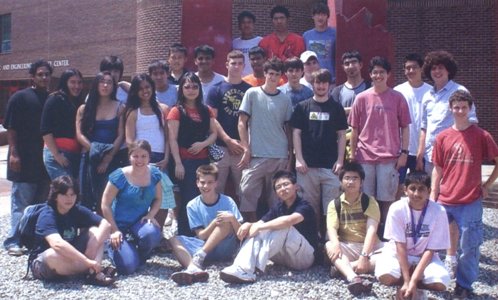 2006 RUTGERS YOUNG SCHOLARS IN DISCRETE MATHEMATICS |
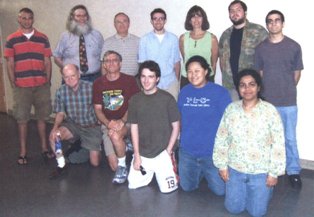 2006 RYSP Staff L to R, Front Row: Michael O'Nan (Co-Director), Jerry Jared (Resident Instructor), Will Noorigian (RA), Jessica Ding (RA), Deepti Baja (TA). Back Row: Steven Robinson (TA), Joseph Rosenstein (Co-Director), Terry Perciante (Instructor), Grant Kolmer (TA), Debby Toti (Program Coordinator), Jim Schreyer (RA), Noam Brown (TA). |
Dr. Liadan O'Callaghan Boyen, who participated in RYSP about a dozen years ago as a high school student, returned to give a presentation "From RYSP to Google." Liadan, who went on to get a Ph.D. in Computer Science from Stanford, discussed her activities as a computer scientist at Google.
Fifteen New Jersey counties and three other states supplied the students for the program, as follows. Atlantic-David Vuong; Middlesex: Jay Amin, Jamie Eisenman, Harold Liao, Stephanie Lin, Janaki Shah, Xiang Xiao; Bergen- Braden Sidoti, Steven Wu; Camden- Thomas Redles; Cape May- Andrew Townley; Cumberland- Noriko Jacques; Essex- Haoyan Man; Hudson- Daniel Morales; Hunterdon- So Yeon Lim; Mercer- John Erdogan, David Zheng Monmouth- Richard Castellano; Morris- Josephine Walentowicz; Ocean- Dustin Richwine; Somerset- Rowan Laidlaw; Union- Neil Huskey; New York State- Andrew Levy; Pennsylvania- Brian Delaney, Jonathan Fry; Virginia- Jyotiska Biswas, Timothy Gao.
TOP
ALUMNI NEWS
The Mathematics Department is very interested in hearing from its alumni/alumnae from either the undergraduate or graduate program, about where they are and what they are doing. Our Mathematics Alumni website is a place to facilitate contacts among former graduates and serve as a source of contacts for our current graduates. We would be especially interested to know if you are employed in a company that hires mathematics graduates at any level, since we are seeking summer internship opportunities for our students and also occasionally look for individuals willing to come to campus to speak about job opportunities in industry for mathematics majors. Please let us know if you would be willing to participate in such activities.
If possible, responses should be sent by email to: mathalum@math.rutgers.edu
Current Address:
Job Title and Company:
Home Phone:
Business Phone:
Email address:
Web page url:
News item:
If you do not have access to email, please FAX the
information to 732-445-5530 (attention: Alumni Committee)
Department of Mathematics - Hill Center
Rutgers, The State University Of New Jersey
110 Frelinghuysen Rd
Piscataway, NJ 08854-8019
TOP
CONTRIBUTIONS TO THE MATHEMATICS DEPARTMENT
The Mathematics Department would like to thank its alumni and friends for their past generous support of the Department. Gifts to the Department enhance our ability to compete for the most outstanding undergraduates and graduate students, to bring outstanding mathematics faculty as visitors to the Department, and to support seminars and colloquia. If you would like to help us by making a contribution, you can do so directly on the web at the URL https://secure.entango.com/donate/GSuEdXhgRpV by clicking on "Or choose an academic department:" and selecting Mathematics. If you would like to discuss various possibilities for a gift to the Department, please call the Department Chair, Richard Lyons, at 732-445-2393.
A special focus for Department fundraising is an effort to find a source of permanent support for our very successful summer Research Experiences for Undergraduates (REUs) program. This is an eight-week program that gives undergraduates the opportunity to get a taste of what it is like to do research in mathematics. The program includes both individual research and group activities. Each student is assisted by a faculty adviser and some also by a graduate-student adviser. Participating undergraduates receive free on-campus housing and a stipend, so that the total cost to the Department is approximately $5000 per student. Typically, about eight students participate each summer. Although some support is provided by the National Science Foundation through the grants of participating faculty mentors, not all faculty mentors have such support. A permanent endowment would ensure that this program will continue to enrich the educational experiences of our best undergraduates.
Keep an eye out for Rutgers' forthcoming Capital Campaign. This Campaign, unlike earlier ones, began by specifically soliciting ideas from individual departments, and will feature several funding initiatives that originated in the Mathematics Department. If you don't see them, ask for them! They would benefit the Department greatly.
TOP

